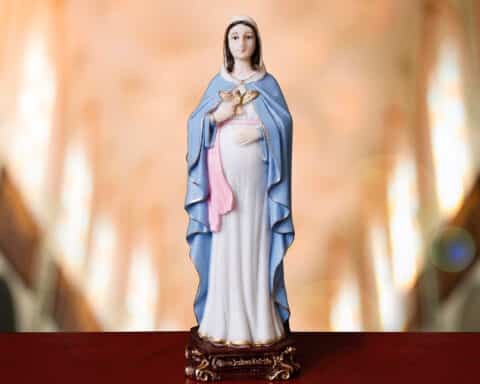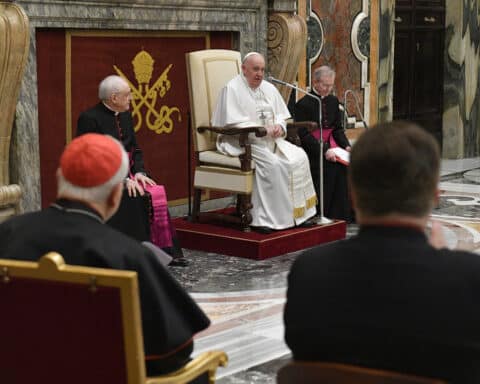
— Jack R. Farese, Leonia, New Jersey
Answer: The point of a penance is not simply to suffer, be punished or somehow repay for what we have done. An act of penance first of all says, “I have missed the mark; I have fallen short and want to acknowledge that.” The Latin word paenae means “close” or “almost” and is at the root of the word penance. So the first meaning of penance is the admission of this fact.
It also contributes to a process of return to the Lord by attempting to repair the relationship to God and others that is harmed by our sins. So we make an act of love and obedience to the Lord and of communion with the Church and the saints by our prayers. While our small acts of penance cannot fully repair for the damage we do, it is our small participation in the healing that the Lord effects.
That such prayers as you describe are joyful and pleasant should not surprise us. Reconciliation should be experienced as joyful and, as you say, thrilling. To be back in a healthy and proper relationship with God, the saints and the Church is a grace of the Sacrament of Penance and the joy that comes from it is proper.
It’s certainly possible for a penance to be a service or a donation. Confessors, however, often give more compact penances (especially where very serious sins are not involved) so that the penitent can be sure they have accomplished it. There is also a sense that a penance one must delay — for example, to schedule some form of community service — is easily forgotten or unfulfilled. Assigning a penance the penitent can fulfill in the moments after confession is often best.
In no sense should we think that we earn absolution by the performance of a penance. The grace of forgiveness and mercy is wholly a gift from the Lord. Our penance shows gratitude and the willingness to move fully back in the direction of justice and healing.
Marian source
Question: When we hear details about the Annunciation, Joseph’s role, the Magi, and so forth, is it possible that Mary herself was the source of such information? Otherwise how would we know of such things at all?
— Robert Bonsignore, Brooklyn, New York
Answer: It is quite likely that Mary herself is the source of many of the stories of Jesus’ early life. It is also possible that Jesus himself mentioned some of these events, either from his own memory or as Mary and Joseph related events to him. St. Luke indicates that eyewitnesses are at the source of the Gospel narratives. Surely Mary would have been among those he spoke with regarding the early years of Jesus’ life. He says, “Since many have undertaken to compile a narrative of the events that have been fulfilled among us, just as those who were eyewitnesses from the beginning and ministers of the word have handed them down to us, I too have decided, after investigating everything accurately anew, to write it down in an orderly sequence …” (Lk 1:1-3). Thus if Luke did not speak directly with Mary, others surely did and handed on the information.





